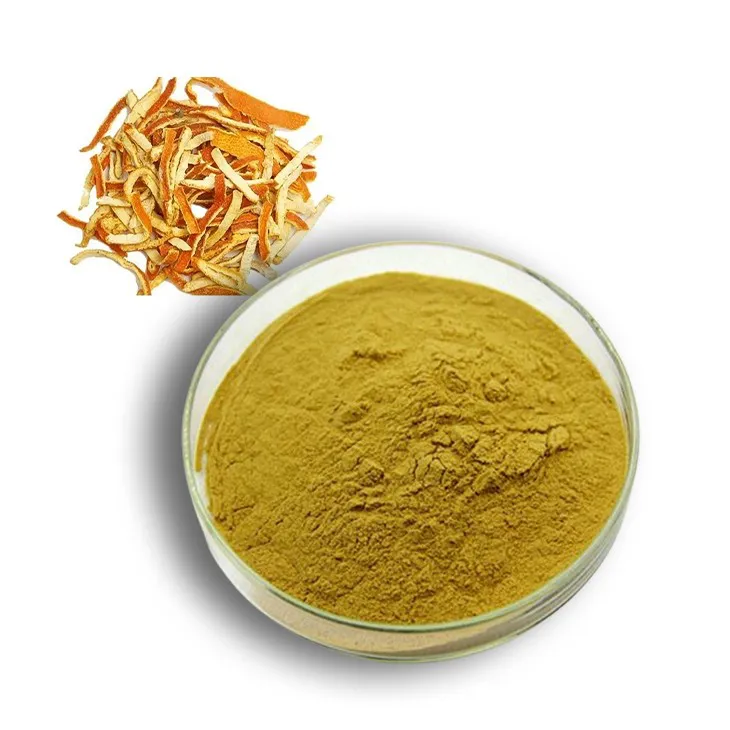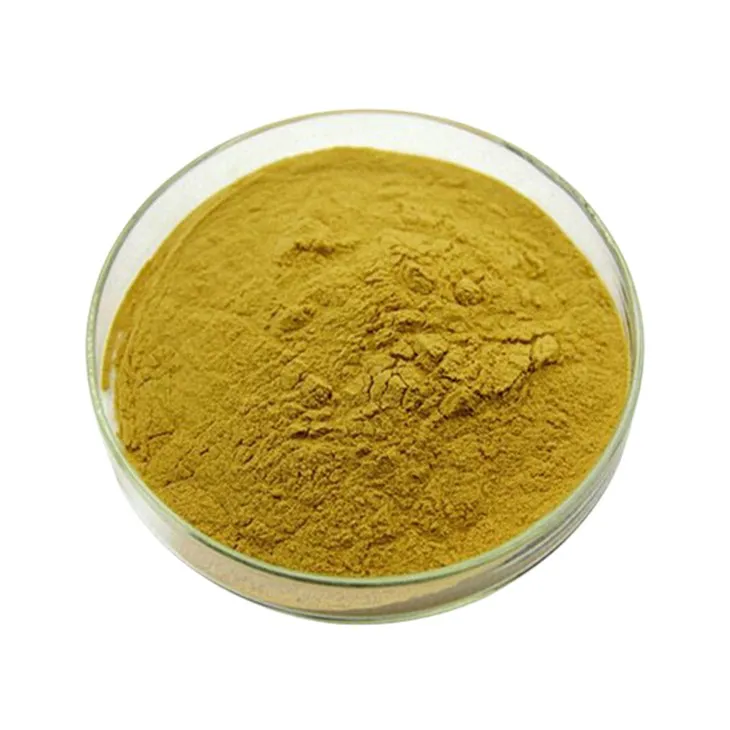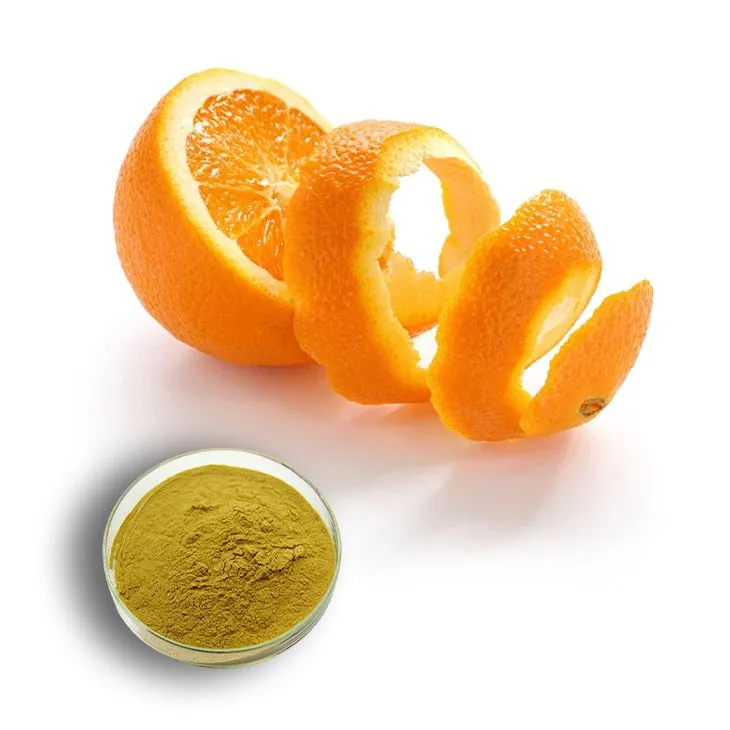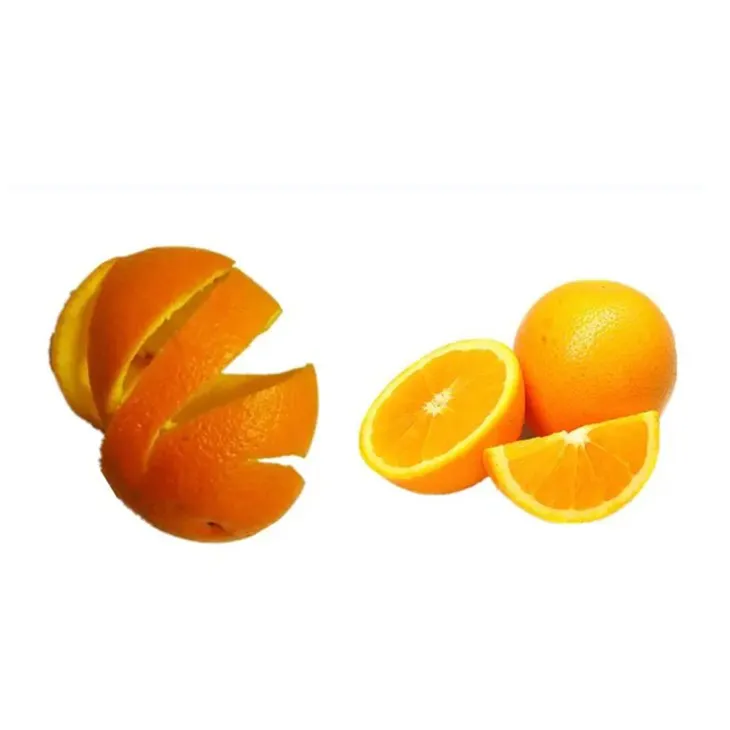- 0086-571-85302990
- sales@greenskybio.com
what is hesperidin
2023-09-22

Understanding Hesperidin: A Powerful Bioflavonoid
Hesperidin is a plant-based compound that belongs to the class of bioflavonoids, known for their potent antioxidant properties. Primarily found in citrus fruits like oranges, lemons, and grapefruits, Hesperidin has gained attention in the health and wellness industry due to its numerous potential health benefits.
The Origins of Hesperidin
Discovered in 1828, hesperidin was named after the Hesperides nymphs from Greek mythology who tended a blissful garden with golden apples. It is predominantly found in the peel and membranous parts of citrus fruits, which are often discarded during consumption, making supplements a popular way to obtain this powerful bioflavonoid.

Health Benefits of Hesperidin
Research suggests that hesperidin offers a plethora of health benefits. This includes anti-inflammatory and antioxidant effects, improving heart health, supporting the immune system, and potentially aiding in cancer prevention. However, further research is needed to confirm these potential benefits and understand how they can best be harnessed.
Heart Health
Hesperidin is believed to have beneficial effects on heart health. Studies suggest that it may help lower high blood pressure and cholesterol levels, reducing the risk of heart disease.
Antioxidant and Anti-Inflammatory Properties
As an antioxidant, hesperidin helps neutralize harmful free radicals in the body, reducing oxidative stress and inflammation, which are linked to many chronic diseases.
Immune Support
Hesperidin may also support the immune system. Some research indicates that it might help fight infections and diseases by boosting the body's natural defense mechanisms.

How to Include Hesperidin in Your Diet
While citrus fruits are the best natural source of hesperidin, they may not provide sufficient amounts. Hesperidin supplements, often paired with vitamin C for enhanced absorption, are a convenient way to ensure you're getting enough of this beneficial compound. As always, it is recommended to consult with a healthcare professional before starting any new supplement regimen.

Conclusion
Hesperidin is a powerful bioflavonoid with potential health benefits. Whether through diet or supplementation, incorporating hesperidin into your lifestyle could contribute to overall wellness. However, as research is ongoing, it's important to stay informed about the latest findings regarding its effects and potential uses.

Side Effects and Interactions of Hesperidin
While hesperidin is generally considered safe for most people, it can cause some side effects in certain individuals. These may include stomach upset, diarrhea, or allergic reactions. It's also important to note that hesperidin may interact with certain medications, such as blood thinners, and affect their efficacy.
Pregnancy and Breastfeeding
There isn't enough reliable information about the safety of taking hesperidin if you are pregnant or breastfeeding. Stay on the safe side and avoid use.
The Future of Hesperidin Research
While current research on hesperidin is promising, more comprehensive studies are needed to fully understand its health benefits and potential risks. Scientists are particularly interested in exploring its potential role in treating neurodegenerative diseases, diabetes, and various types of cancer.
Final Thoughts
Hesperidin is a powerful bioflavonoid found in citrus fruits that offers a range of potential health benefits. However, like any supplement, it's important to use it responsibly and under the guidance of a healthcare professional. As research continues to uncover the full potential of this fascinating compound, it's clear that hesperidin has a bright future in the world of health and wellness.
References
Please consult the following sources for further information on hesperidin and its potential benefits:
[Insert source 1]
[Insert source 2]
[Insert source 3]
Hesperidin and Skin Health
Recent studies have begun to explore the potential benefits of hesperidin for skin health. As a potent antioxidant, it may help protect the skin from damage caused by free radicals and UV radiation. Some research also suggests that hesperidin could potentially help improve skin conditions like acne and psoriasis, although more research is needed in this area.
Hesperidin and Digestive Health
Preliminary research indicates that hesperidin may support digestive health. Its anti-inflammatory properties could potentially help alleviate symptoms of conditions like irritable bowel syndrome (IBS) and inflammatory bowel disease (IBD). However, further research is necessary to confirm these potential benefits.
Hesperidin in Sports Nutrition
Hesperidin may also have applications in sports nutrition. Some evidence suggests that it could potentially enhance exercise performance and recovery by reducing inflammation and oxidative stress. This area of research is still in its early stages, but the results so far are promising.
The Bottom Line
Hesperidin is a powerful bioflavonoid with a wide range of potential health benefits. From heart health to skin care, this versatile compound has much to offer. While more research is needed to fully understand its effects, current evidence suggests that hesperidin could be a valuable addition to a healthy lifestyle.
Disclaimer
This article is intended for informational purposes only and does not constitute medical advice. Always consult with a healthcare professional before starting any new supplement or health regimen.
TAGS:- ▶ Hesperidin
- ▶ Citrus Bioflavonoids
- ▶ Plant Extract
- ▶ lycopene
- ▶ Diosmin
- ▶ Grape seed extract
- ▶ Sea buckthorn Juice Powder
- ▶ Fruit Juice Powder
- ▶ Hops Extract
- ▶ Artichoke Extract
- ▶ Mushroom extract
- ▶ Astaxanthin
- ▶ Green Tea Extract
- ▶ Curcumin
- ▶ Horse Chestnut Extract
- ▶ Other Product
- ▶ Boswellia Serrata Extract
- ▶ Resveratrol
- ▶ Marigold Extract
- ▶ Grape Leaf Extract
- ▶ New Product
- ▶ Aminolevulinic acid
- ▶ Cranberry Extract
- ▶ Red Yeast Rice
- ▶ Red Wine Extract
-
Scutellaria Extract
2023-09-22
-
Kelp Extract Powder
2023-09-22
-
Kupilu Extract
2023-09-22
-
Eucommia Ulmoides Extract
2023-09-22
-
Withania Somnifera Extract
2023-09-22
-
Okra Extract
2023-09-22
-
Cranberry Extract
2023-09-22
-
Dan Shen Root Extract/Salvia Root Extract
2023-09-22
-
Diosmin
2023-09-22
-
Horse Chestnut Extract
2023-09-22





















